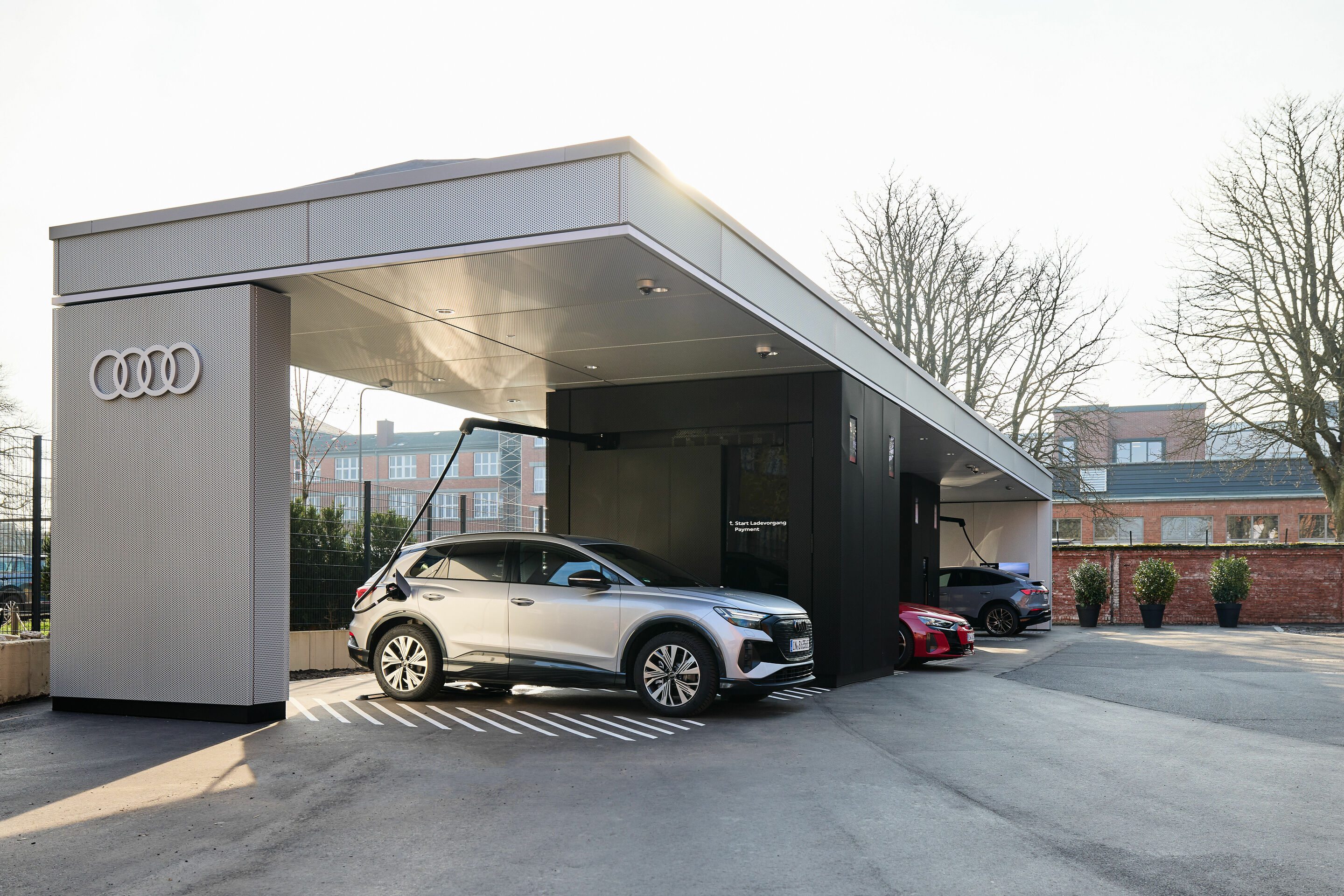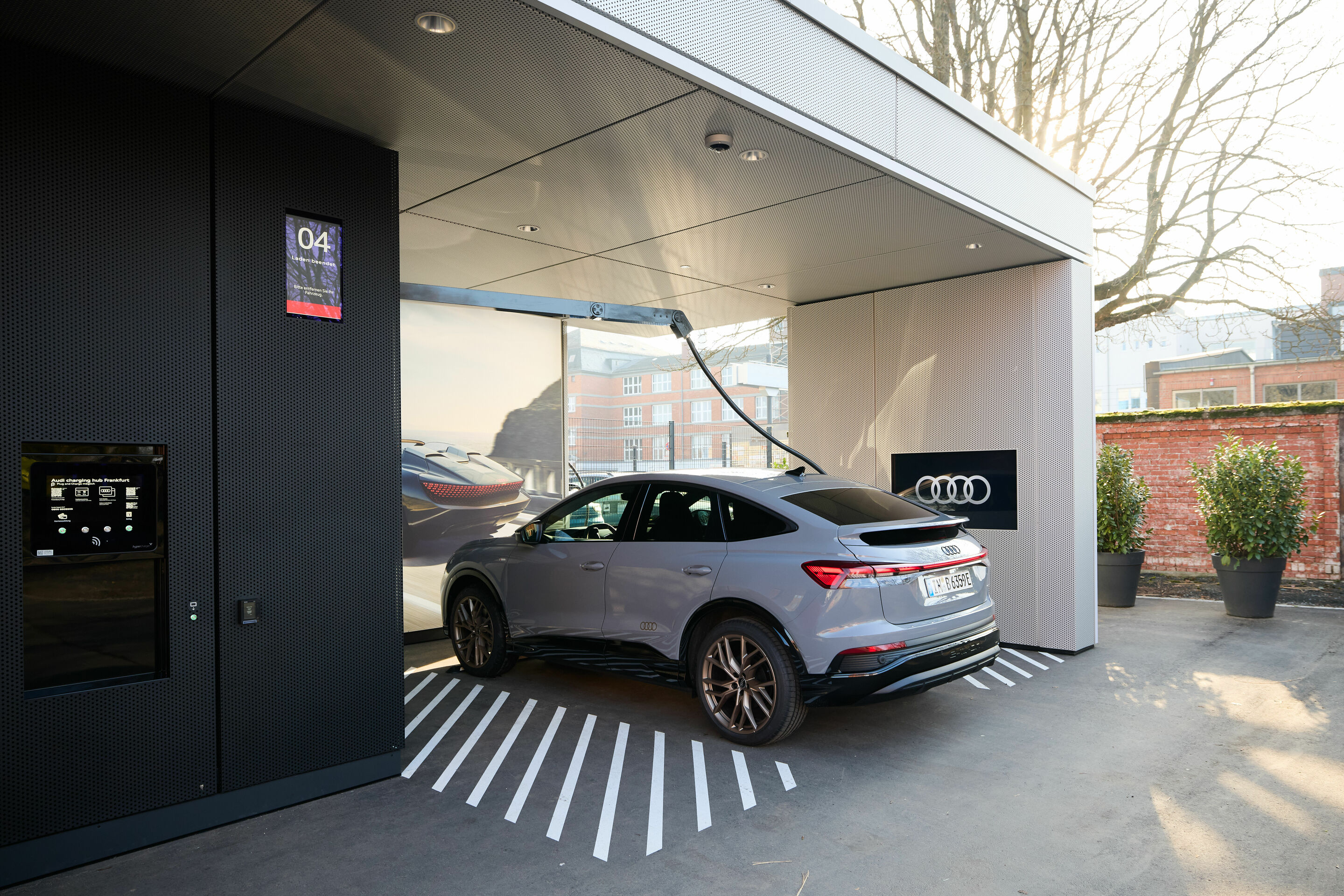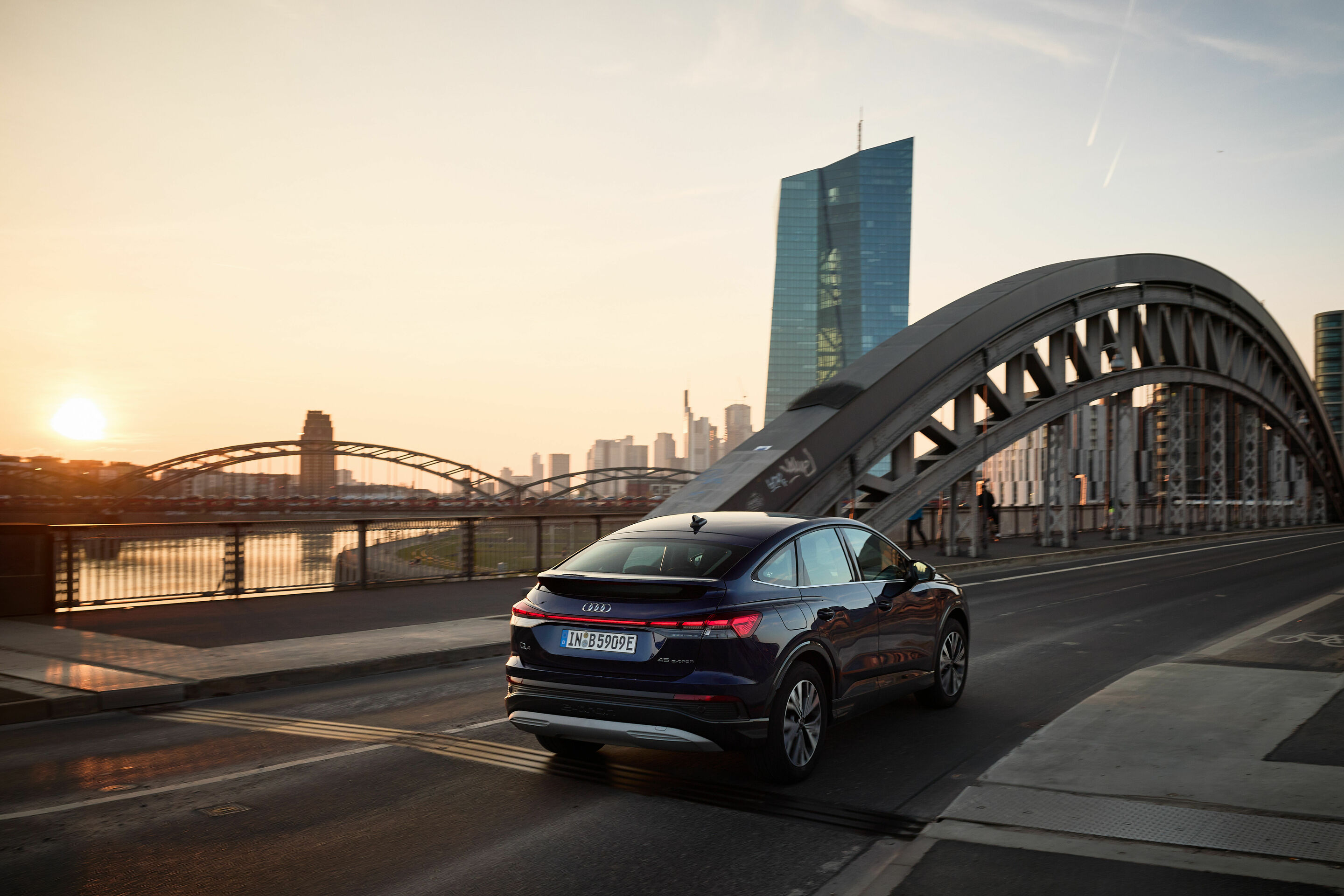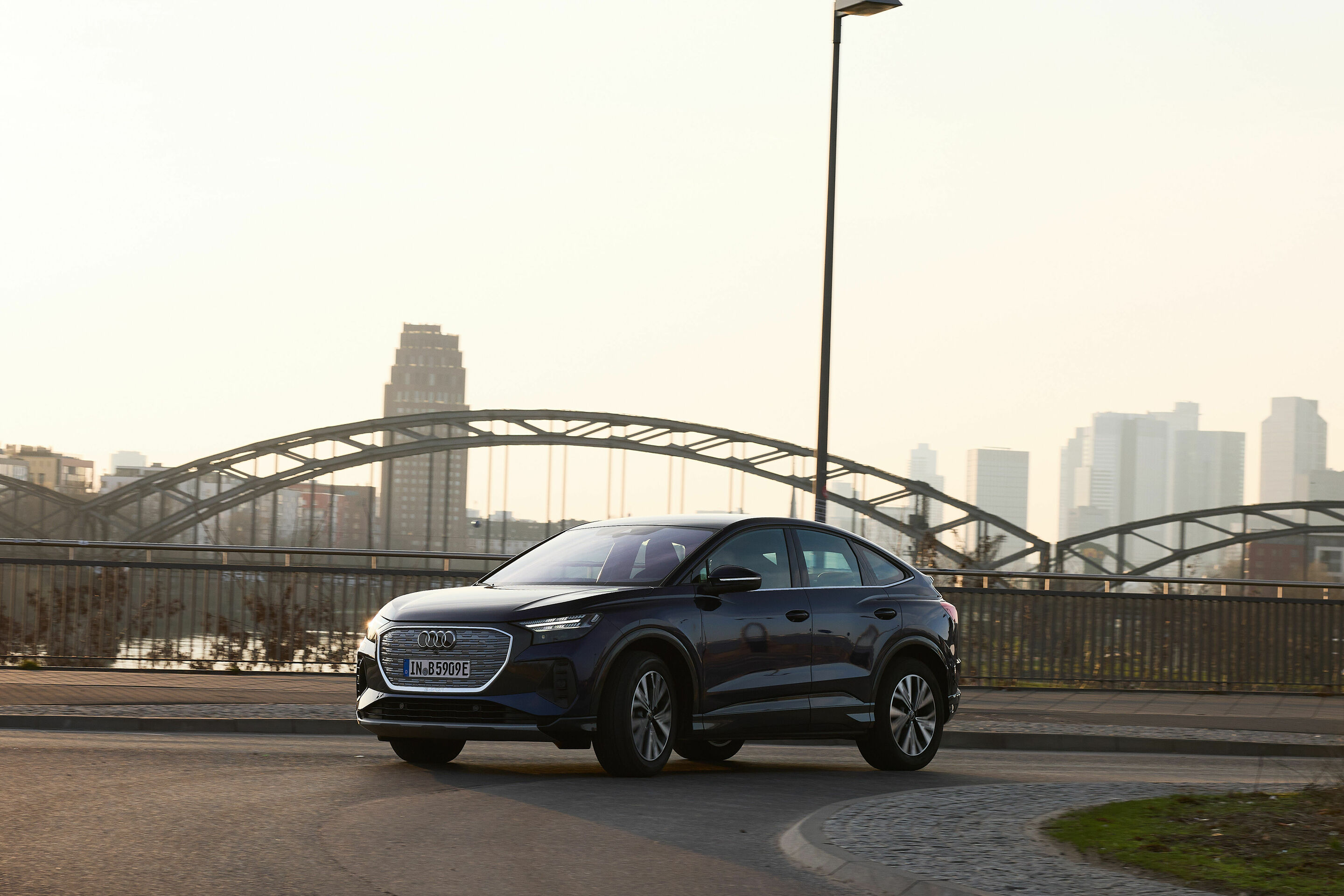Search
All results
(493)
MediaInfos
(77)
BasicInfos
(3)
Press kits
(7)
Biographies
(1)
Images
(327)
Videos
(32)
Publications
(11)
Technical Details
(1)

Currently, these are the Audi A4, Audi A5, Audi Q3, Audi Q5, Audi Q7, Audi A6, Audi A7, Audi A8, Audi Q4 e-tron, Audi Q8 e-tron, Audi e-tron GT as well as models based on the Premium Platform Electric (PPE) like the Audi Q6 e-tron. A myAudi account is required to use the Audi Application Store. An active Internet connection via bookable data packages or a smartphone is required to use the FC Bayern app. Currently, the FC Bayern app is only available in Germany.

Battery capacity of 55 kWh (52 kWh net) enables a range of up to 365 kilometers; 125 kW (170 hp) ensures superior driving performance An integrated app store provides access to popular third-party apps; regular updates guarantee they are always up-to-date The base price of 45,600 euros includes extensive equipment as standard
Audi is adding an interesting entry-level variant to the Q4 e-tron series: the multifaceted Audi Q4 35 e-tron costs 45,600 euros, and the Sportback with an elegant rear is 47,600 euros. The all-electric premium model includes comprehensive equipment as standard, offers a range of up to 355 kilometers (Sportback: 365 kilometers), and a DC charging capacity of 145 kW. New in the Q4 e-tron: an integrated app store enables direct access to popular third-party apps such as Spotify or Audible without using a smartphone. The Q4 35 e-tron will be available to order from July this year.
The best-selling electric car of the four Rings is becoming more attractive - thanks to an even broader model range. With the Q4 35 e-tron, Audi is making it easier to enter the all-electric premium compact segment.

With the e-tron, Audi embarked on the path to electric mobility in 2018 and has written a success story with around 150,000 vehicles delivered to customers worldwide. The family of electrically powered models has grown in recent years and months: Audi S e-tron GT, RS e-tron GT, RS e-tron GT performance, Audi Q4 e-tron, and Audi Q8 e-tron have significantly expanded the product portfolio. The Audi Q6 e-tron will be added in 2024 as the first electric model produced in Ingolstadt and the first battery-electric vehicle (BEV) on the Premium Platform Electric. The new Audi Q6 e-tron will be launched in Germany and numerous other European countries from the third quarter of 2024. The Audi Q6 e-tron quattro and the SQ6 e-tron will be available to order from the end of March 2024 and start at EUR 74,700 and EUR 93,800, respectively.
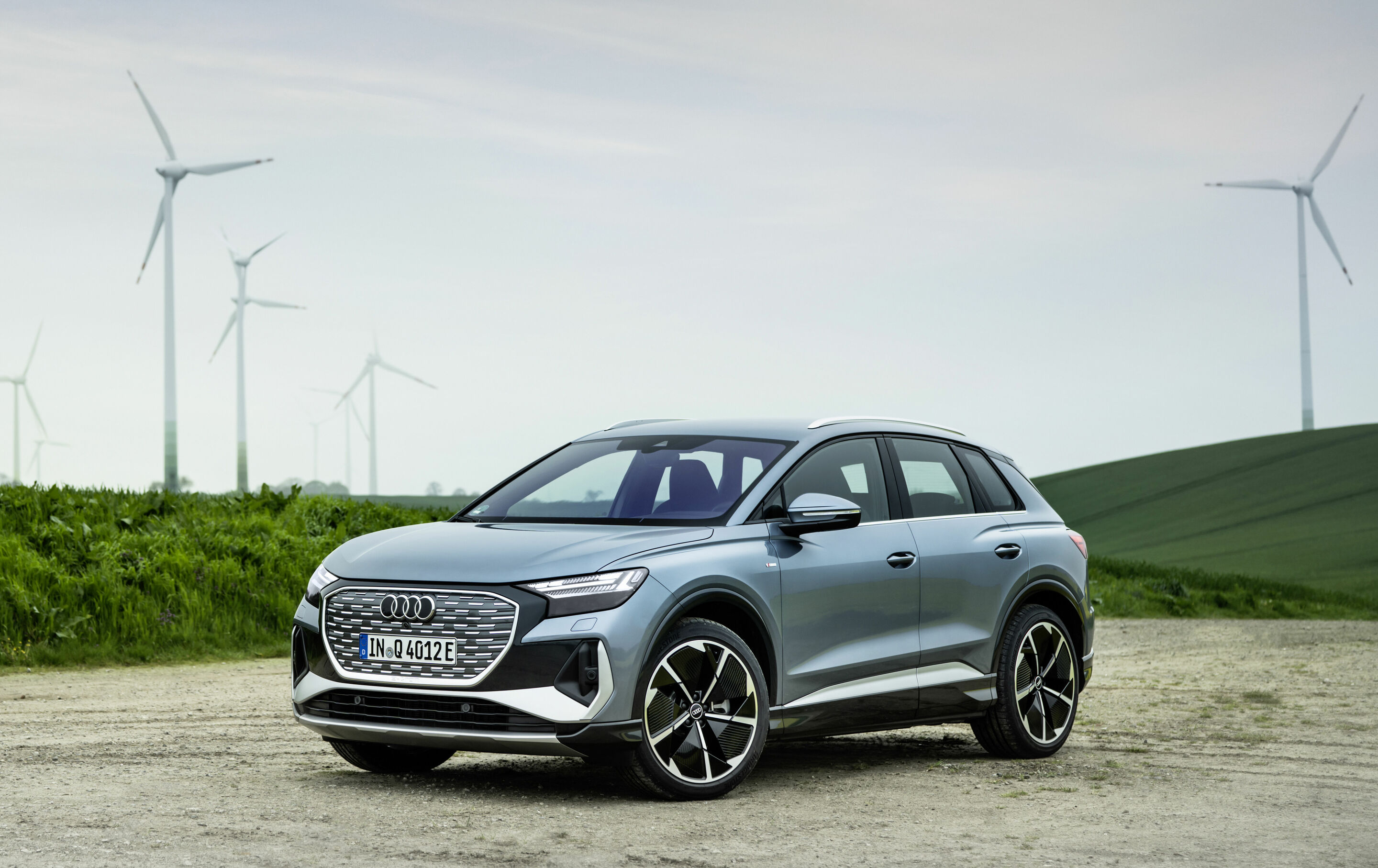 Audi Q4 e-tron
Audi Q4 e-tron
Audi Q4 e-tron
The Audi Q4 e-tron is being comprehensively upgraded: with a retuned chassis, increased efficiency, characteristic sound, and more standard equipment. In addition to an optimized drive concept and higher charging power, Audi is expanding the range of functions in the model's driver assistance system. With the optional adaptive driving assistant, it now supports lane changes.
 Fermín Soneira - Biography
Fermín Soneira - Biography
From September 2020, he was Head of the Product Line for Electric Models from the A to C Segment (Model series: Q4 e-tron, Q6 e-tron, Q8 e-tron, A6 e-tron and e-tron GT) at AUDI AG. Since March 2024 Fermín Soneira is the CEO of the Audi and SAIC Cooperation Project. The project has been set up in Shanghai to jointly develop a new China-specific platform for the next generation of premium intelligent, connected vehicles. This cooperation will further expand the Audi BEV portfolio in China with three new models starting in 2025.
 Lifecycle analysis
Lifecycle analysis
More sustainability in the supply chain
The Audi Q4 e-tron shows in concrete terms what sustainability looks like throughout the life of an Audi vehicle. Producing powerful batteries takes a great deal of energy. This is why, in the production of electric vehicles, nearly half of carbon emissions can be chalked up to the supply chain. To offset this, Audi launched its “CO2 program in the supply chain” back in 2018. Together with suppliers, the program identified measures for reducing carbon emissions. For example, certified green electricity is used for the production of the Audi Q4 e-tron’s cells – and suppliers commit to this by contract. Another example of how Audi is bringing more sustainability to the supply chain is secondary materials. Audi returns the aluminum scraps from the press plant to the supplier for processing and then gets them back in the form of newly processed aluminum coils. This means less primary aluminum is necessary, and less carbon is emitted. The Aluminum Closed Loop has avoided more than 780,000 tons of net carbon emissions3 since its introduction in 2017. In the meantime, the plants in Neckarsulm, Ingolstadt, and, since 2021, Győr in Hungary, as well as the Volkswagen site in Bratislava, are implementing the "Aluminum Closed Loop".
Green power in the utilization stage
The greatest potential for fully leveraging the advantages of electric drive systems lies in the utilization stage. In addition to the fact that electric cars don’t emit carbon on the road, the electricity used for charging is a decisive factor here. In their garage at home, customers can charge the Q4 e-tron with green power, for example, using Volkswagen Naturstrom, a sustainable electricity solution provided by “Elli”, a subsidiary of the Volkswagen Group. Customers on the road in Europe can charge using renewable electricity from networks such as IONITY’s.
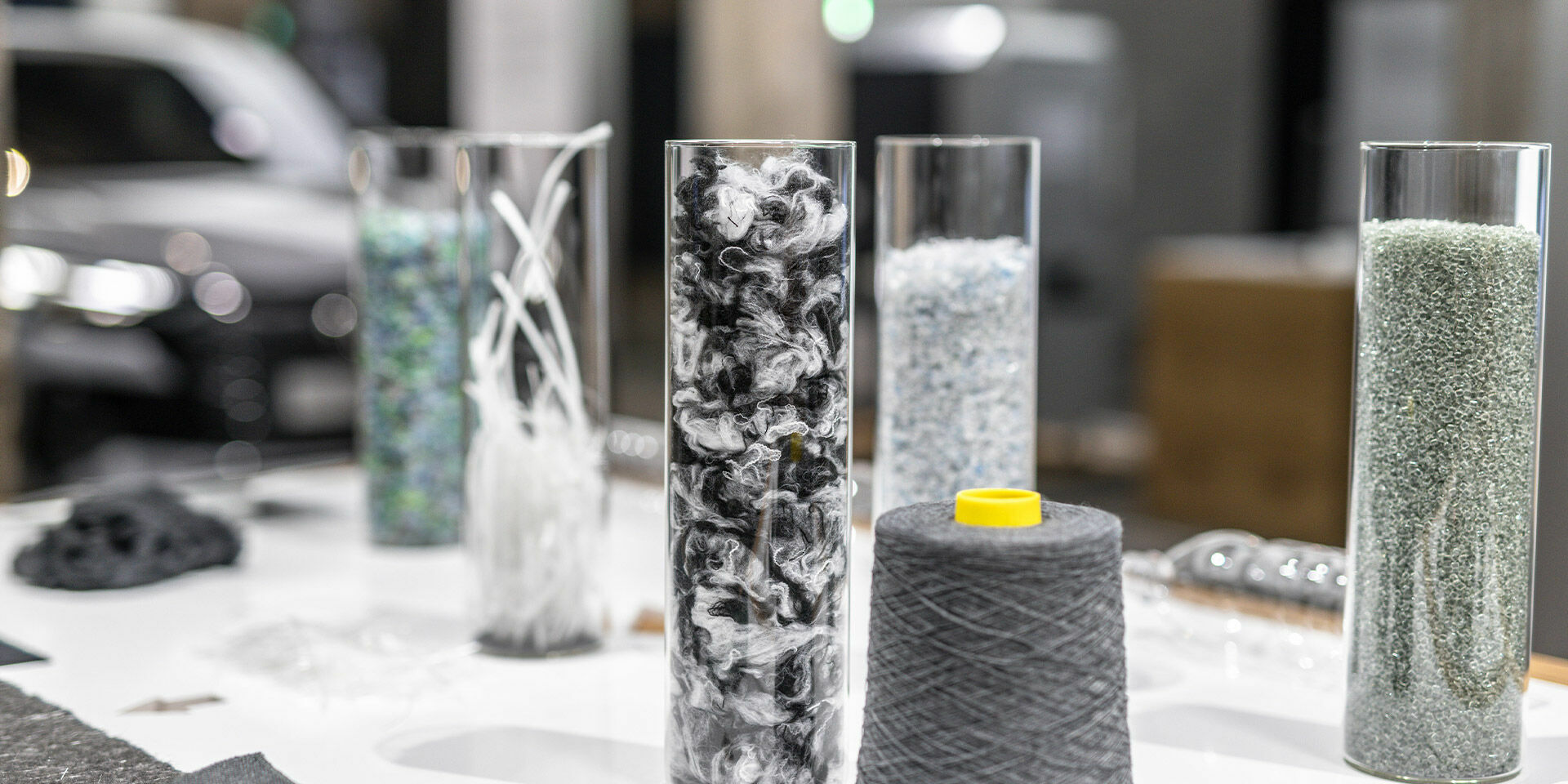 Circular economy
Circular economy
For the first time, Audi is using steel scrap recycled from products used by end consumers (post-consumer recyclates) to produce a body shell component, starting with the Audi Q6 e-tron. The steel used in our production of all variants of the Audi Q6 e-tron's outer roof panel comes from a manufacturing process using 15% post-consumer steel scrap, including scrap from end-of-life vehicles. To this end, enough steel scrap is added to the steel production process to achieve an average post-consumer recyclate content of 15% in the steel used to manufacture the outer roof section (so-called mass balance approach). However, this means that the actual percentage of steel scrap used in the individual outer roof section of an Audi Q6 e-tron can also be less than 15%. 2 At least 70 percent of the plastic granulate used in seatbelt buckle covers (including fillers and additives) comes from the pyrolysis oil produced in the project. This pyrolysis oil is added to the plastic granulate during the manufacturing process. The allocation of the waste-based pyrolysis oil to the plastic granulate is carried out as part of a mass-balance approach with a qualified credit transfer. This means that ecocycle, an independent external certification body, has confirmed that the project members have replaced the quantities of fossil resources required for the seatbelt buckle covers with pyrolysis oil produced from mixed fractions of automotive plastics. It is intended to provide sufficient pyrolysis oil in the scope described above for the entire production life cycle of the Q8 e-tron on the basis of currently projected production figures.
As of: March 2024
MediaInfos
Download - Circular economy
Back to Sustainability
Julia Winkler
Verena Geyer
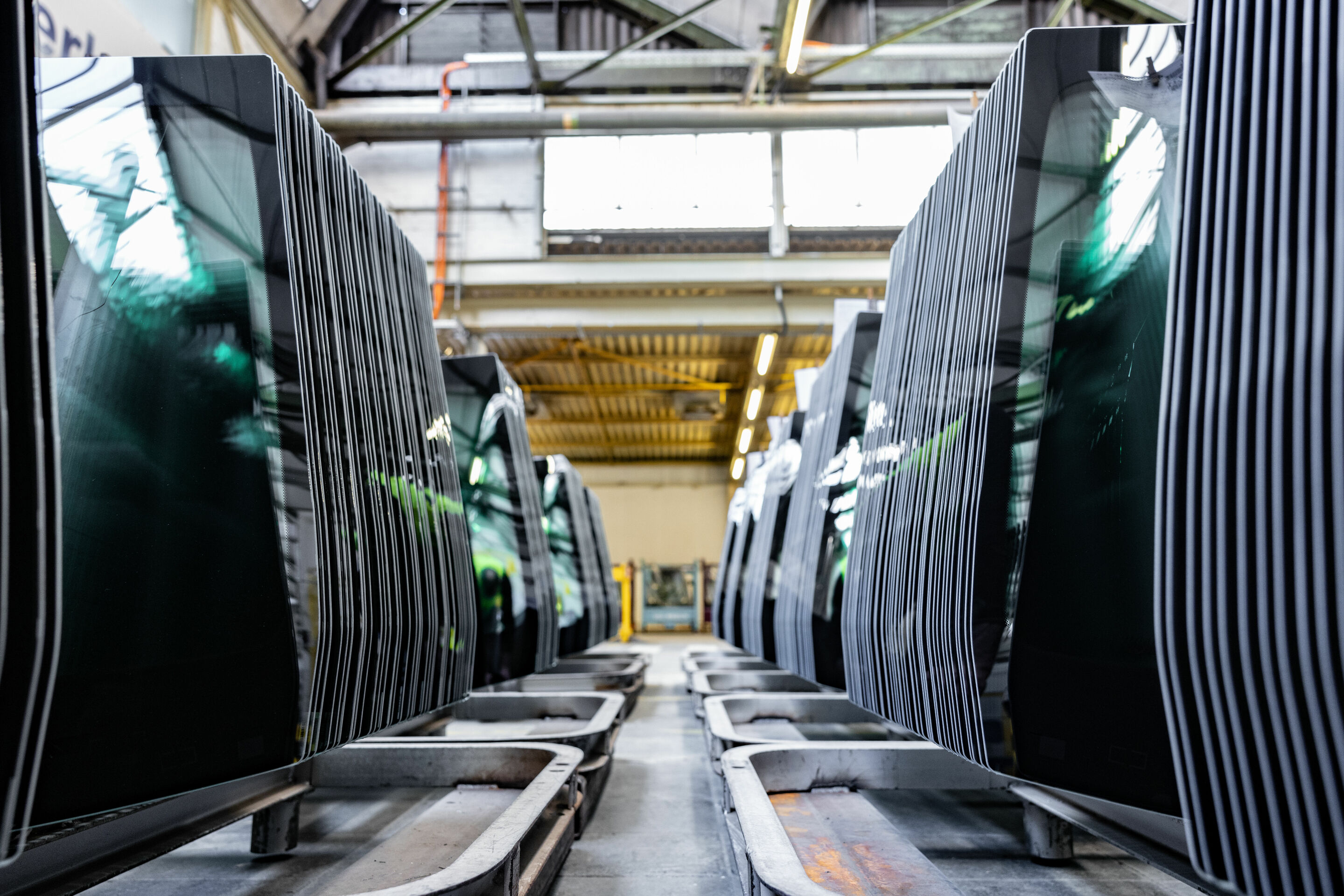 Profile of location
Profile of location
The Audi Q4 Sportback e-tron derivative has been produced here since summer 2021. For the four Rings, production in Zwickau is also a return to its roots, which lie in Saxony: to expand his business, company founder August Horch moved to Zwickau, where he had "A. Horch Motorenwagenwerke AG" entered into the commercial register in 1904. This laid the foundation stone for automobile manufacturing in Saxony. Glass recycling in the Audi Q4 e-tron In 2022, Audi and its partner companies launched a pilot project for recycling old car windows. The project aims to recover valuable material from damaged car glass for series production. The car windshield is first shredded in a multi-stage process using an innovative recycling process. The partner companies then sort out all non-glass impurities, such as adhesive residue. The resulting glass granulate is then melted down and processed into new flat glass with the primary material. This is used to make new car windows. Since September 2023, the four Rings has been using glass with a recycled content of up to 30 percent from car windows that can no longer be repaired for the Audi Q4 e-tron windscreen. Audi is thus successfully transferring the "GlassLoop" pilot project to series production. Audi is the first premium manufacturer to establish such a glass loop in the automotive industry together with partner companies. With this project, Audi and its partner companies are taking up the challenge of establishing a closed material loop for automotive glass1. The project is part of Audi's circular economy strategy. Audi has set itself the goal of increasingly using secondary materials, especially from post-consumer sources, to save resources, energy, and CO2 – precisely where it is technically feasible, ecologically sensible, and economically viable. 1Audi saved more than 480,000 metric tons of CO₂ equivalents (CO2e) in its supply chain in 2021.
